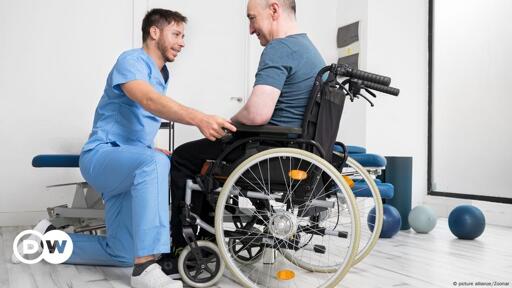- cross-posted to:
- europe@lemmit.online
- cross-posted to:
- europe@lemmit.online
Summary
Germany faces a critical shortage of health-care workers, with 47,400 unfilled positions in 2023/2024, particularly for physiotherapists (11,600 vacancies), dental assistants (7,350), and nursing staff (7,100), according to a study by the German Economic Institute (IW).
The aging population is driving increased health-care demand, with those aged 65+ projected to rise from 21% to 29% by 2030.
The study highlights a broader labor market issue, with over 530,000 skilled worker vacancies across all industries, including 42,000 in construction-related fields.



a little less democracy creates a buffer against populism. Half of the legislature is chosen by the parties off a list (after winning support; sort of like voting straight-ticket). The parties make the lists, so they aren’t as likely to pick crazies as rogue voters. Then, a party has to get 5% of the votes to get a place in the assembly. Yes, the AFD has been meeting that occasionally, but, for the first reason, the real nutjobs find themselves in the lesser parties. On top of all this, the prime Minister isn’t directly elected, so a Trump (who most of his own party despises) is less likely. Germany is having problems lately; mostly with infighting and inter- party cooperation, but it’s harder for the populace to elect surprise officials
I appreciate the insight. So if I’m understanding you correctly, the AfD while they’re picking up fringe support, hasn’t really been able to broaden its coalition and lacks the capacity to hijack the government, even from a position of plurality.
I’m curious how the overall public perception of immigration will be for Germans going forward, considering the assimilation of the Syrian refugees Merkel took in, Germany’s aging workforce, as well as the existing need to fill jobs like medicine. Are there polling data trends available on this?